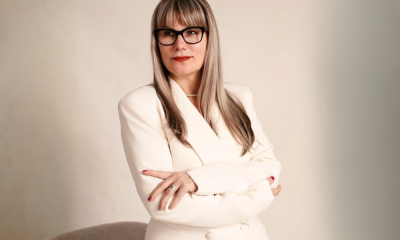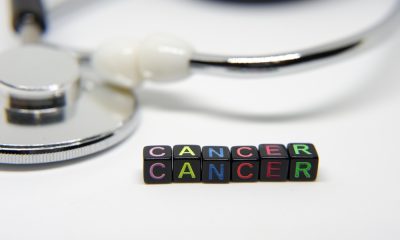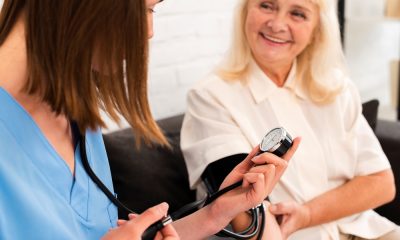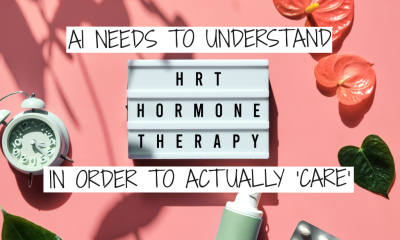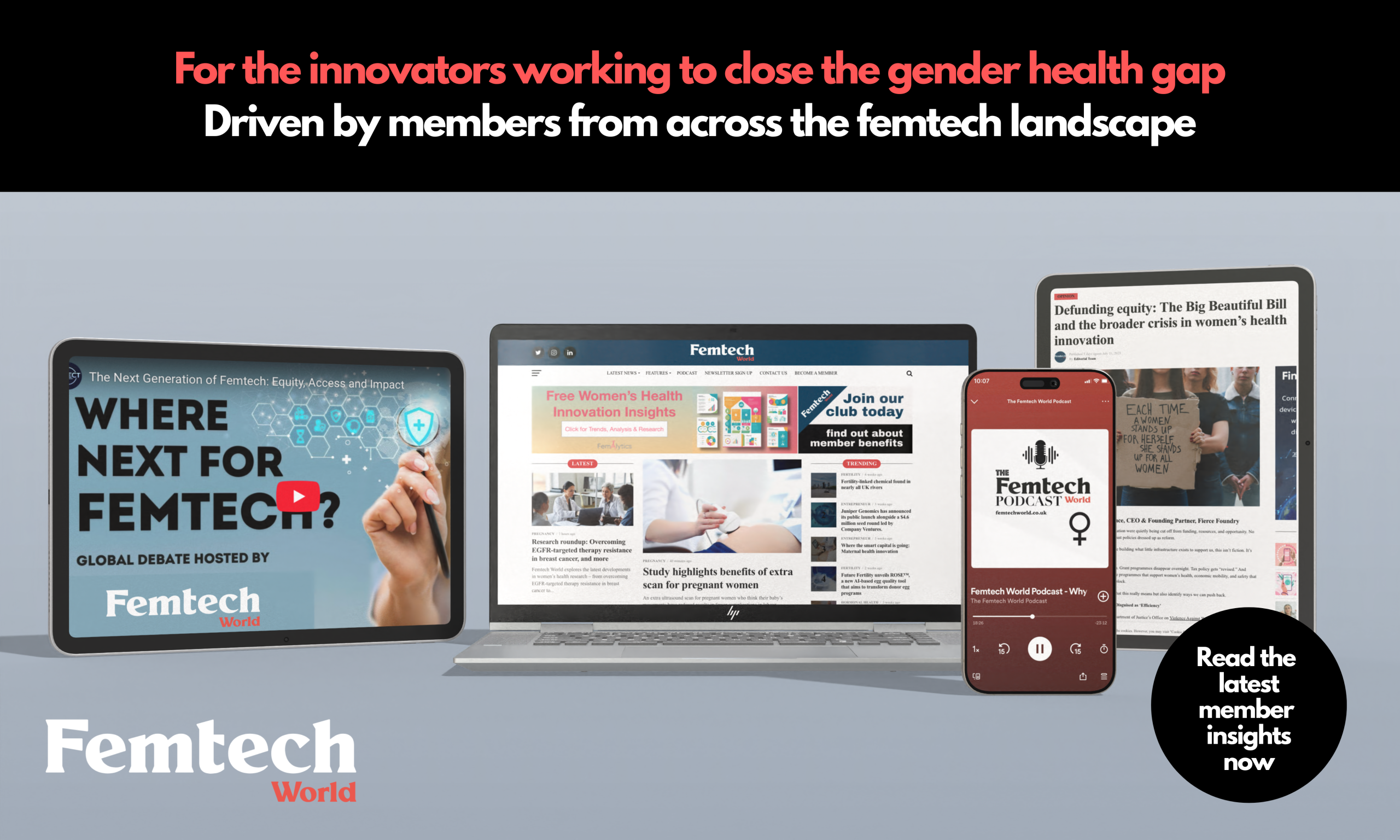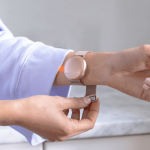Events
Women’s Health Week Europe launches two specialised pitch competitions to accelerate innovation
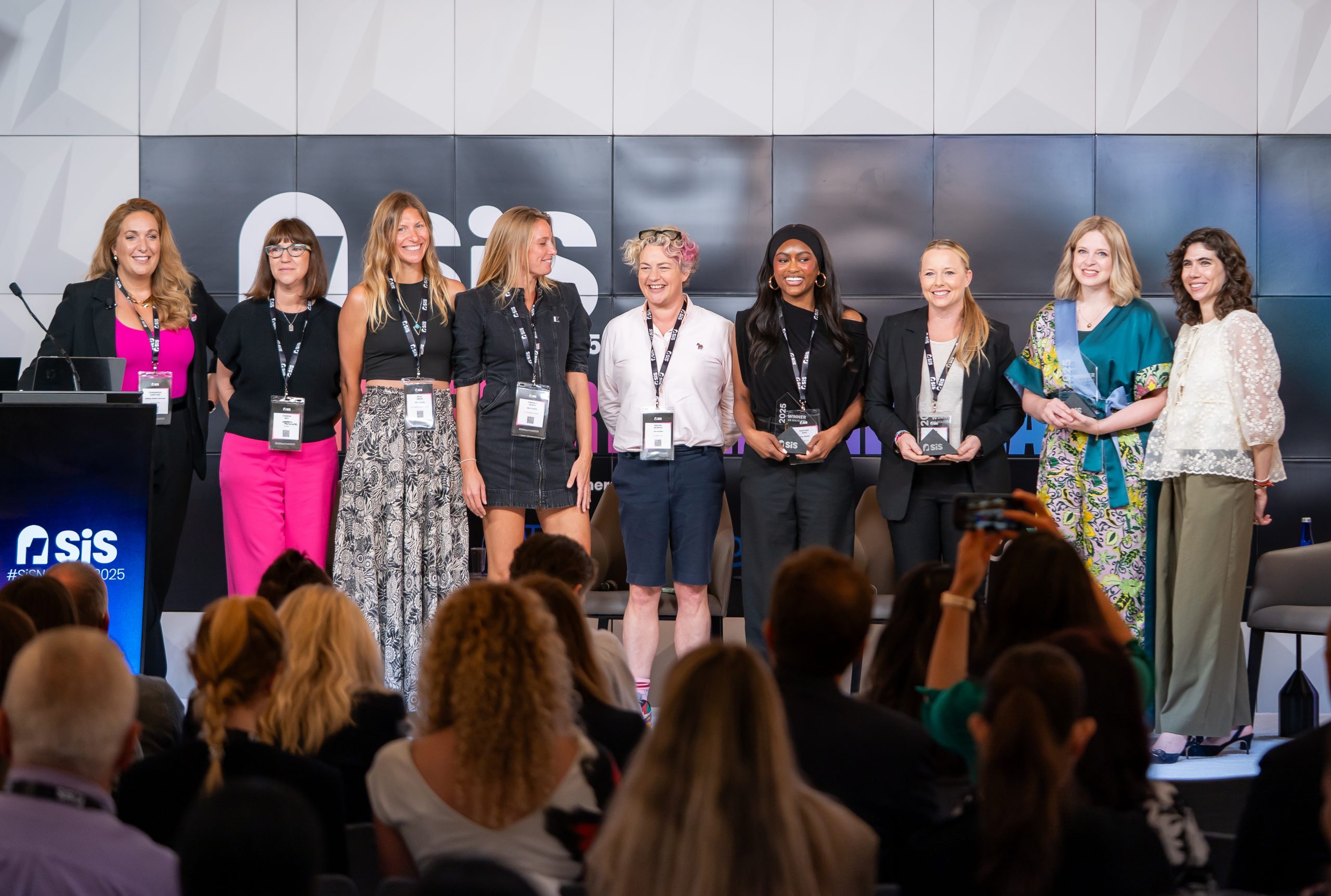
Following the success of standout alumni like Impli and Hera Biotech, Women’s Health Week Europe doubles down on innovation with two targeted startup showcases.
Women’s Health Week Europe, the continent’s largest dedicated women’s health event, has announced the opening of applications for its expanded innovation showcase — now featuring two specialized pitch competitions designed to fast-track breakthrough solutions across the women’s health ecosystem.
Building on a track record of launching growth-stage companies like Impli and Hera Biotech, this year’s competition introduces two targeted tracks to reflect the growing breadth of innovation:
Therapeutic & Med Device Showcase
For clinically focused solutions in oncology, cardiovascular and autoimmune health, reproductive care, contraception, maternal and pelvic health, menopause (via HRT, diagnostics, or devices), clinical mental health (including DTx and medical devices), and bone health.
Consumer & Tech Showcase
For direct-to-consumer solutions in menstrual and sexual health, sleep, dermatology, holistic wellness, mental health (via wellness apps, community platforms, or self-care tools), and menopause management through tracking and wellness products.
The competitions will take place at the Barbican Centre in London on 16–17 October 2025 as part of Women’s Health Week Europe, giving selected startups direct access to top-tier investors, global corporates, and strategic partners actively seeking opportunities in the rapidly growing women’s health market.
“The women’s health sector is experiencing unprecedented momentum,” said Molly
Taylor, Head of Content at Women’s Health Week Europe.
“By expanding into two specialised showcases, we’re ensuring that innovations — from clinical therapeutics to consumer wellness — gain direct access to the capital and connections they need to scale.”
A Market Ripe for Disruption
The global women’s health market is projected to reach $60 billion by 2027, fueled by rising awareness, rapid technological advancement, and increased investment in historically underserved areas.
These pitch competitions aim to accelerate this progress by connecting cutting-edge startups with the capital and partnerships needed to bring their solutions to market.
What Applicants Receive
All applicants — regardless of selection status — will benefit from high-value exposure and access:
- Access to Founders Day programming
- Featured listing in the official startup directory
- Networking with investors, multinationals, and sector experts
- Full event access to Women’s Health Week Europe
- One-to-one investor meetings through curated matchmaking
Finalists additionally receive:
- Live pitch opportunity before leading European investors and industry leaders
- High-impact visibility and validation among potential partners and funders
Proven Results
The competition has a strong track record of success.
Previous winners and participants have secured significant funding, forged strategic partnerships, and unlocked new market opportunities — validating the platform’s power to connect innovation with investment and scale.
Application Details
Deadline: 19 September 2025
Location: Barbican Centre, London
To Apply: Submit a pitch deck and secure an event ticket (early-bird pricing
currently available)
Apply now: https://bit.ly/400EoZc
About Women’s Health Week Europe
Women’s Health Week Europe is the continent’s premier gathering of innovators, investors, healthcare providers, and industry leaders focused on advancing women’s health.
From startup showcases and strategic matchmaking to interactive workshops and investor roundtables, the event is designed to catalyze commercial growth and health impact across the women’s health ecosystem.
Wellness
Cutting through the noise in femtech – key takeaways from Women’s Health Week 2025

The flagship women’s health summit brought together over 400 visionary founders, funders and innovators, with a shared mission of transforming women’s health worldwide.
This year’s Women’s Health Week, which took place at the Barbican, London from 14-17 October, showcased a sector once considered by funders to be too much of a ‘niche’, meeting a crucial unmet need with huge market demand.
Investments are outperforming their value, regulators want to speed up the route to market, and clinical validation is cutting through the noise and demonstrating real results.
There is a buzz about the femtech sector – or at least there was in the Barbican last week – but experts have urged founders should move forward responsibility, building ethics and equity into their innovations.
Here’s our takeaways from the key conversations at Women’s Health Week.
1. Women’s health is outperforming – but angels and influencers are crucial for raising capital
Investment in women’s health is outperforming, and this trend is expected to continue, according to the panel at Women’s Health Week on Thursday 16th, where fund managers and founders highlighted significant returns, growing institutional interest, and the critical role of early-stage backers.
Sanji Chotai, a senior investment manager at British Business Bank, says she is seeing “really encouraging data” and anticipates more “outperformance”, particularly in medtech, which is drawing interest thanks to “shorter timelines to regulatory approval” and rapid commercialisation.
Series A and B activity is also picking up, but the panel agreed that early-stage capital and angel investors remain essential.
“My first angel investment in a women’s health company, I think on Series A, is going to be 20x on multiple and for our fund, it’s going to be around 9x,” said Trin Linamagi, founding partner at Sie Ventures.
“We need to take bigger bets and double down – and actually put the capital behind these businesses early on.”
Having driven successful campaigns for Soulcycle and Barry’s Bootcamp, Tatum Getty, now a founding general partner at THENA, also highlighted the importance of influencers – and not just on Instagram.
“Who is that person who believes in what we’re building and will tell their friends,” she said.
“Women have not been traditional investors they are more risk averse, smaller investment but bigger impact. They add so much more value than the amount of capital that they contribute.”
2. NICE and new pathways for health technologies
During a discussion on mastering Europe’s regulatory process, a representative from the National Institute for Health and Care Excellence (NICE) outlined how new rules-based approval routes, now being introduced for health technologies, are designed to speed access to innovation.
The body is also better aligning processes with the Medicines and Healthcare products Regulatory Agency (MHRA) to reduce the time it takes to regulatory approval.
“We’re taking forward the rules-based pathway for health tech,” said Kendall Gilmore, a senior advisor at NICE.
“Developing a model more similar to the medicines pathway, where, for some products, it goes through the MHRA, through NICE and then comes with a recommendation that has a funding mandate attached.”
The pathway, currently being developed will see health technologies assessed in a similar way to medicines with the first products approved from April next year.
NICE currently evaluates only a fraction of the 500,000 technologies used daily in the NHS. While a NICE recommendation is “not mandatory”, it can be a “powerful signal” to the NHS.
NICE is constantly “horizon scanning” for “disruptive products” further down the pipeline and is engaging more directly with innovators, industry associations and international partners to identify promising technologies earlier, and a new early value assessment route is giving promising products a faster track.
“If it meets an unmet need, it should be used with further evidence generation,” Gilmore explained.
“This is particularly relevant for digital health and diagnostics.”
3. Scientific validation is the most effective way to ‘cut through the noise’
In a panel exploring how to “cut through the noise” in femtech, founders were urged to bake credibility into product design from day one, with scientific proof and clinical validation the sharpest differentiator, according to Soun Rakshit, of MV Health.
“You have to spend probably two years going through the R&D process,” said Rakshit.
“That is the best and probably the only way to do it, so that by the time you get regulatory approval, you have already had significant patient feedback and iteration.”
Earning trust also means collaborating with experts who understand the problem, as Helen O’Neil, founder of Hertility, explained.
When in the development stage, O’Neil reached out to professionals, including obstetricians and gynaecologists to understand the right questions to ask based on their “clinical intuition and personal experience”.
Rakshit added: “If we can show true clinical evidence, and it does take time, it is the best way to cut through the noise.”
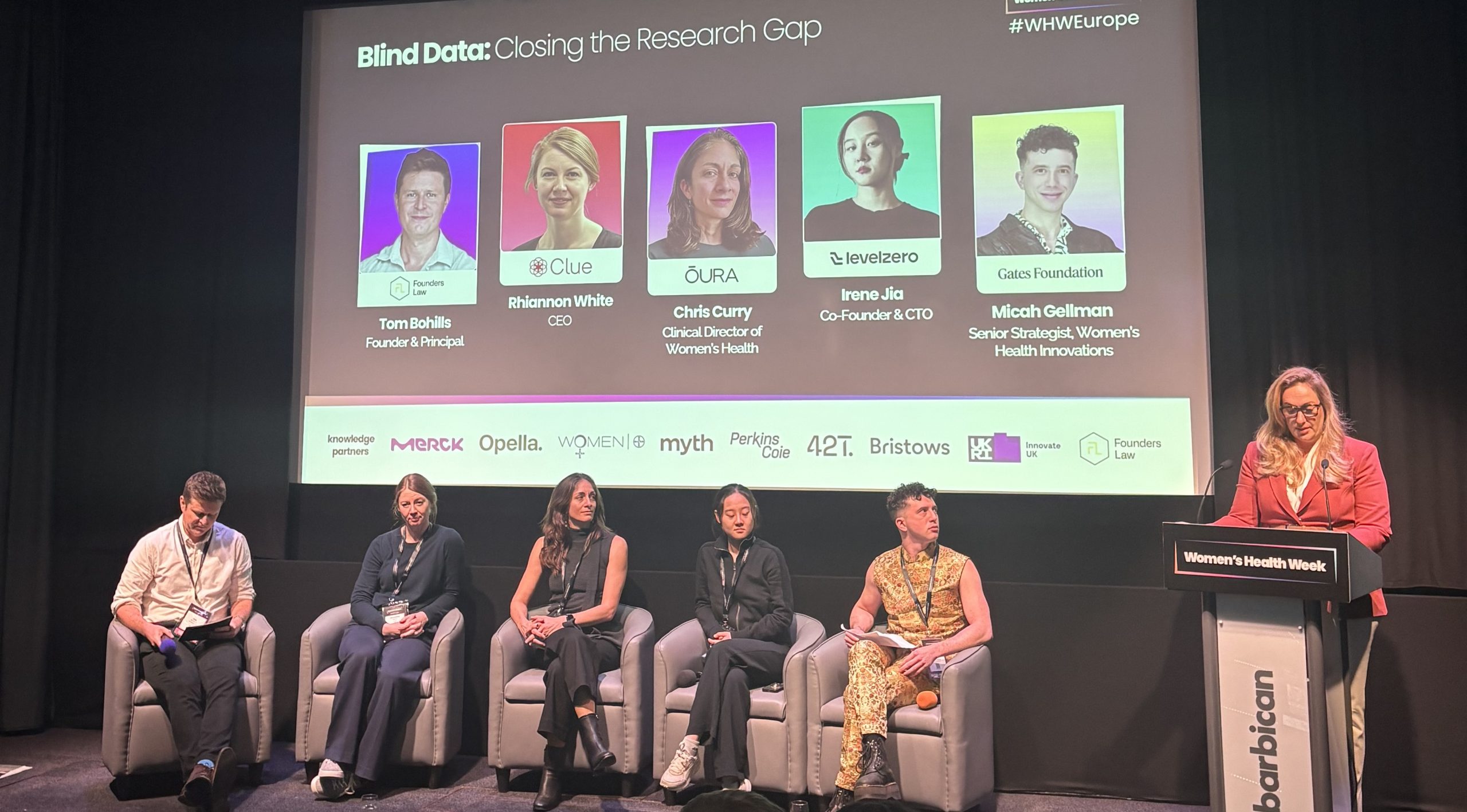
4. Bias in AI is ‘real and harmful’ – and founders need to know how to address it
Experts discussed the role of AI and its potential to both help and harm women’s health, urging proactive testing and human oversight to avoid the risk of decades of a “male default model” being implemented into new solutions.
“AI that’s trained on that skewed data can really fail women,” said Sarah Montgomery Taylor, clinical lead of GenAI evaluation and scaled services at Google, highlighting familiar examples such as heart-attack presentation.
“Biases are real, and they are really harmful, and so being aware of them is so crucial.”
Panellists also flagged “measurement bias” and the “historical dismissal of women’s pain,” where systems trained on those records “can learn to deprioritise” certain signals.
Beyond bias in diagnostics, Marinos Ionnides, head of software and AI medical devices regulation at the MHRA, highlighted the risks of implementing AI in areas where there may be hidden bias.
“I’m quite worried about the deployment of software AI in places where we aren’t we didn’t know we would be finding bias [such as] appointment booking,” he said, adding that in these “unknown unknowns,” “the regulator has their greatest role”.
Founders were urged to be responsible when scaling AI, introducing guardrails such as building in equity and collecting data from the very beginning for “rigorous real-world validation”.
Clinicians need to be able to test the product and understand it to build trust, while regulatory processes should be “adaptive”, offering “clarity on what the path is to market”.
Chen Davies, founder at Anya, shared a real-world example of how products and content tailored for underserved groups drove measurable change, including a “10% population-wise” rise in breastfeeding rates in a deprived area of Blackpool after six months.
“AI should gradually complement human support without replacing it,” said Davies.
5. Consumer data can play a critical role in building the clinical evidence-base
During the final panel, participants argued that continuous real-world data, paired with clinical benchmarks, is the fastest way to fix women’s health’s “male baseline” problem and turn lived experience into evidence.
Dr Chris Curry, clinical director for women’s health at Oura, argued that wearables are “one of the big unlocks” by collecting data that gives the “whole picture of the human”.
But tracking can – should – meet clinical standards, with the panel pushing for globally representative consumer datasets.
“I see consumer data if it’s truly representative, if it’s truly globally representative, being critical,” said Micah Gellman, a senior strategist for women’s health innovation at the Gates Foundation.
“It helps us calibrate and link consumer insights and lived experience to clinical anchors and value outcomes… this kind of consumer data is one avenue that we have to really change investor appetite.”
Rhiannon White, CEO of Clue, which has a long-running research collaboration with Oura, including collecting symptom tracking data on perimenopause and pain, added that women’s spending power can actually steer where future R&D should be focused.
“We are able to shape and direct where people will put their research and put their development with our spending power,” she said.
6. The crisis in government support can be an opportunity for more innovative funding pathways
With the Gates Foundation recently committing an additional US$2.5bn for research in women’s health, Gellman also reframed the reduction in government funding for women’s health – such as that seen under the Trump administration in the US – as an opportunity for more innovate financing.
“There is a real opportunity for European and Asian government funding to step up and fill some of those gaps,” said Gellman.
“An opportunity for government funding and philanthropic funding to take new forms and to be partnering in new ways to catalyse innovation and to work with academics and industry players.”
Rather than a binary between grants and VC, the panel highlighted “blended financing mechanisms, venture philanthropy… different kinds of outcome-based financing” with public and philanthropic dollars used “to de risk, early-stage investment”.
Gellman added: “This crisis that we’re in, in terms of government funding is also an opportunity for innovative financing.”
The comments brought the conference full circle, reminiscent of those made earlier in the day, by Tatum Getty, who highlighted: “Women and small amounts of capital, can make a big difference.”
News
Sara Davies to Open Women’s Health Week Europe 2025

Sara Davies, acclaimed TV broadcaster and trailblazing entrepreneur, will be joining Women’s Health Week Europe as a guest speaker to open the main event at Women’s Health Week Europe this October.
The announcement marks a significant moment for women’s health innovation, as one of the UK’s most recognisable investors steps onto the WHW stage to spotlight the sector’s commercial potential and growth opportunities.
Known for her ability to identify bold ideas and scale businesses to global success, Davies will bring her trademark energy and investor insight to an audience of more than 300 decision-makers spanning pharma, consumer health, medtech, digital health, investment, and global health organisations.
Women’s Health Week Europe 2025, taking place 15–17 October at the Barbican Centre, is the continent’s largest gathering dedicated to women’s health innovation.
The three-day event features interactive masterclasses, high-profile keynotes, curated matchmaking, and pitch showcases designed to accelerate investment, partnerships, and impact across the sector.
Molly Taylor, Head of Content at Women’s Health Week, said: “We’re thrilled to welcome Sara Davies as our opening keynote.
“Her experience as both an entrepreneur and investor perfectly reflects our mission: to showcase world-class innovation and create the strategic partnerships that will scale women’s health solutions globally.”
Tickets for Women’s Health Week Europe 2025 are now available at: https://bit.ly/462DyNV
News
Founders’ Day at Women’s Health Week Europe

Women’s Health Week Europe is adding a dedicated Founders’ Day on Tuesday, 15th October 2025 at the Barbican Centre, London – completely FREE with conference tickets.
This comprehensive business day features interactive workshops, roundtable discussions, and pre-arranged investor meetings, designed specifically for growth-stage innovators and investors in women’s health.
From idea to exit, it’s a complete playbook delivered in one intensive day for founders, C-level executives, and investors ready to accelerate their ventures in this promising sector.
Plus, enjoy 20% off conference tickets using code: WHW20_FEMW0RLD
Access full agenda & tickets here https://eu1.hubs.ly/H0lYBB60
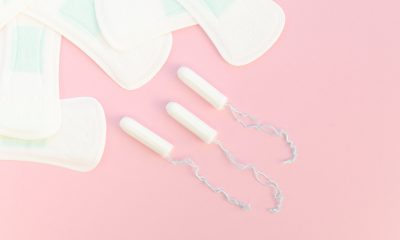
 News3 days ago
News3 days agoDozens of women report suffering painful burns after using Always sanitary towels
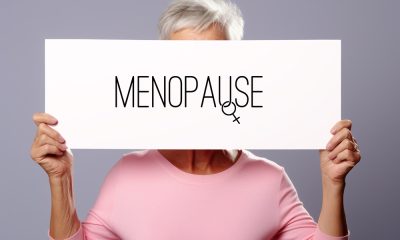
 Menopause3 weeks ago
Menopause3 weeks agoFDA plans to revise black box warning on menopause hormone therapies

 Wellness2 weeks ago
Wellness2 weeks agoAI-powered women’s health companion Nexus launches in UK
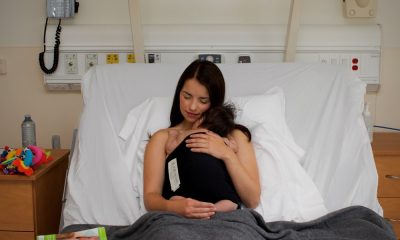
 Wellness1 week ago
Wellness1 week agoWomen’s health innovations recognised in TIME’s Best Inventions 2025
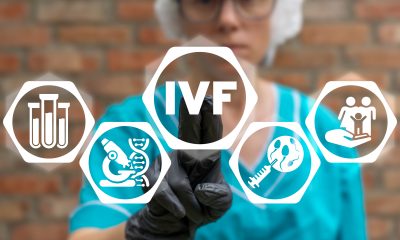
 Fertility3 weeks ago
Fertility3 weeks agoScientists turn human skin cells into eggs in IVF breakthrough

 News3 weeks ago
News3 weeks agoDaily pill could delay menopause ‘by years,’ study finds

 News2 weeks ago
News2 weeks agoAncient herb to modern must-have: Why ashwagandha is capturing UK women’s attention
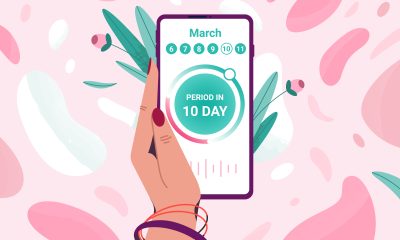
 News2 weeks ago
News2 weeks agoMenstrual cycle affects women’s reaction time, study finds




